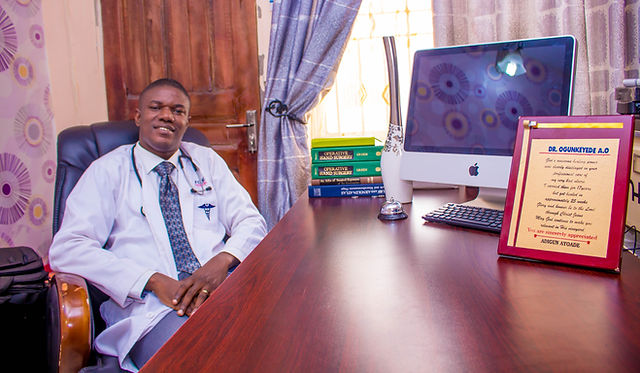A Plastic, Reconstructive and Aesthetic surgeon with Hafar Al-batin Central Hospital, Hafar Albatin, Eastern Region, Saudi Arabia, Dr Ayodele Ogunkeyede have developed novel compression therapy for sickle cell anaemia chronic leg ulcers.
The compression therapy involves applying a special bandage to squeeze and compress out stagnant blood from the legs thereby allowing blood to flow better.
This process accelerates healing, so wounds that never healed are made to heal within weeks.
Speaking in an interview session with newsmen in Ilorin, Ogunkeyede explained that development was through extensive research and innovative thinking
The surgeon said that he developed a pioneering technique utilizing compression therapy in 2015.
Ayodele, who is also a distinguished fellow of the West African College of Surgeons of Plastic Surgery and a fellow of the American College of Surgeons, said that the procedure has offered a ray of hope to those afflicted by this challenging condition.
According to him, ulcers that once took years to heal can now be resolved within a mere three to six months due to this innovative approach.
He pointed out that the cost of the bandages was very high, but with his intervention, of manufacturing and importing the bandages, the cost was now affordable.
Ogunkeyede explained that his passion for the field had been his motivation for the innovation in the field of Sickle Cell Disease (SCD) treatment.
“As both a leading surgeon and a pivotal member of the central working committee for the Sickle Cell Hope Alive Foundation, I have dedicated my career to advancing treatment strategies and improving outcomes for SCD patients worldwide,” he said.
Ogunkeyede explained that the treatment
had revolutionized the healing process of
chronic leg ulcers, which is a debilitating complication that significantly impacts patients’ quality of life.
The expert noted that the groundbreaking work had been disseminated through publications in prestigious scientific journals and presentations at esteemed conferences including, the Sickle Cell Disease American Association’s 2018 annual conference.
“Studies also involves patients suffering from chronic leg ulcers in SCD, gathering invaluable insights that have informed and shaped treatment protocols.
“It also includes empowering caregivers and ensuring the widespread adoption of effective treatment strategies,” he said.
Ogunkeyede disclosed that many healthcare givers in Nigeria were equipped and trained on how to administer compression therapy techniques effectively, thus ensuring that patients receive optimal care and support.
The surgeon stated that people living with SCD, continue to motivate his drive and passion to drive efforts and continue to inspire hope to transform the lives of countless individuals afflicted by this challenging condition.
He added that he frequently dedicates his time to the treatment of indigent people with SCD in Nigeria.
NAN



